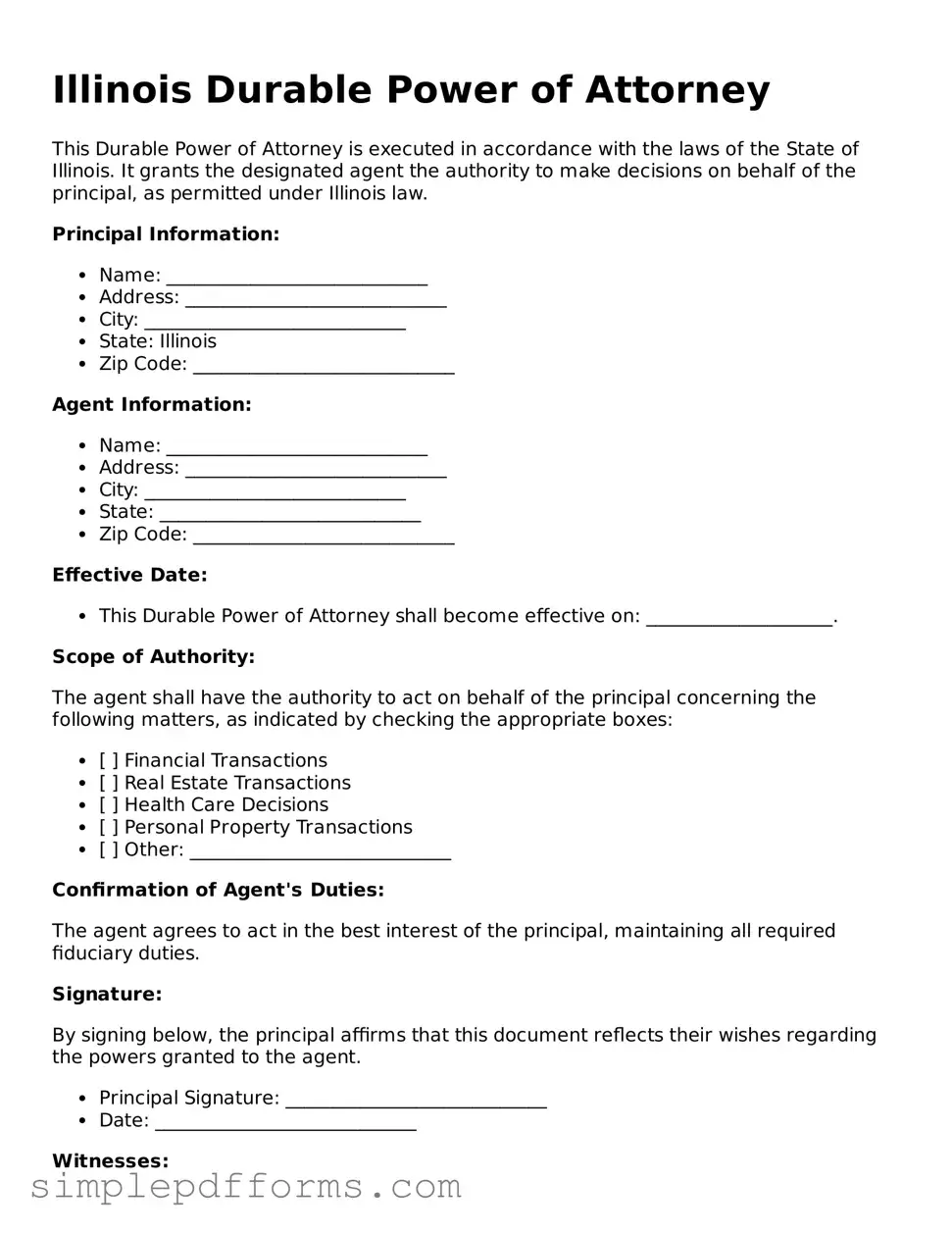Attorney-Verified Durable Power of Attorney Document for Illinois State
A Durable Power of Attorney in Illinois is a legal document that allows you to appoint someone to make decisions on your behalf if you become unable to do so yourself. This form empowers your chosen agent to handle financial and medical matters, ensuring your wishes are respected even when you cannot communicate them. Understanding this document is essential for effective planning and protection of your interests.
Open Durable Power of Attorney Editor Now

Attorney-Verified Durable Power of Attorney Document for Illinois State
Open Durable Power of Attorney Editor Now

Open Durable Power of Attorney Editor Now
or
Get Durable Power of Attorney PDF Form
Your form is waiting for completion
Complete Durable Power of Attorney online in minutes with ease.